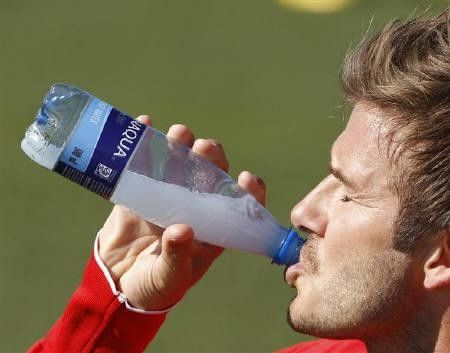Sports Drinks Myths: The Truth About Sports Drinks

People have mixed views about sports drinks. Some say that the sugar and calories that these contain outweigh the benefits such as temporary energy gain. There are also others that heavily depend on these during special sports events. Find out the common sports drinks myths and whether you should start or stop using.
1. All brands are basically the same
Many people believe that regardless of the brand you purchase, you will be getting the same or near the same amount of calories, sugar and sodium -- and this is one of the most popular sports drinks myths. The fact is, different brands have significantly different caloric contents. Fox News reported that Gatorade GSeries 02 Perform Original G has 50 calories, 14 grams of sugar, 30 milligrams of potassium and 110 milligrams of sodium. . Powerade Energy has 45 calories, 10.5 grams of sugar, 50 milligrams of sodium and 0 potassium. Propel Zero has 80 milligrams of sodium, 0 calories, 0 sugar and 0 potassium. There is a huge difference between sports drinks that specifically provide energy and those that maintain proper hydration.
2. Caffeine in sports drinks can lead to dehydration
There are studies that indicate how caffeine also acts as a diuretic, which increase urine output, so people might be more prone to dehydration. According to research, exercise tends to negate the diuretic effects. People who exercised one to two hours after drinking coffee or energy drinks do not have increased fluid output. Sipping water while exercising plus the sodium in sports drinks help in proper fluid retention.
3. Energy drinks are better than water
One of the common sports drinks myths is that you will no longer have a need for water. The truth is, water has the advantage in terms of being clean and containing zero calories. However, people who engage in sports events, competitions and extreme physical activity will need sodium and even caffeine to maintain electrolyte balance. Potassium is also needed to prevent cramping, thus enhancing performance. Depending on the activity, you can benefit from either sports drinks or water. A study conducted by ACSM showed how sports drinks contain carbohydrates that are necessary to boost performance and finish long physical activities.
4. Dehydration is overrated so there is no need for sports drinks
The truth is, dehydration can lead to more serious problems like heatstroke, which can cause system failure and eventually death. A study found that a loss of 2 percent water in the body through sweating can adversely affect performance. It is important to stay hydrated using the right sports drinks.




















